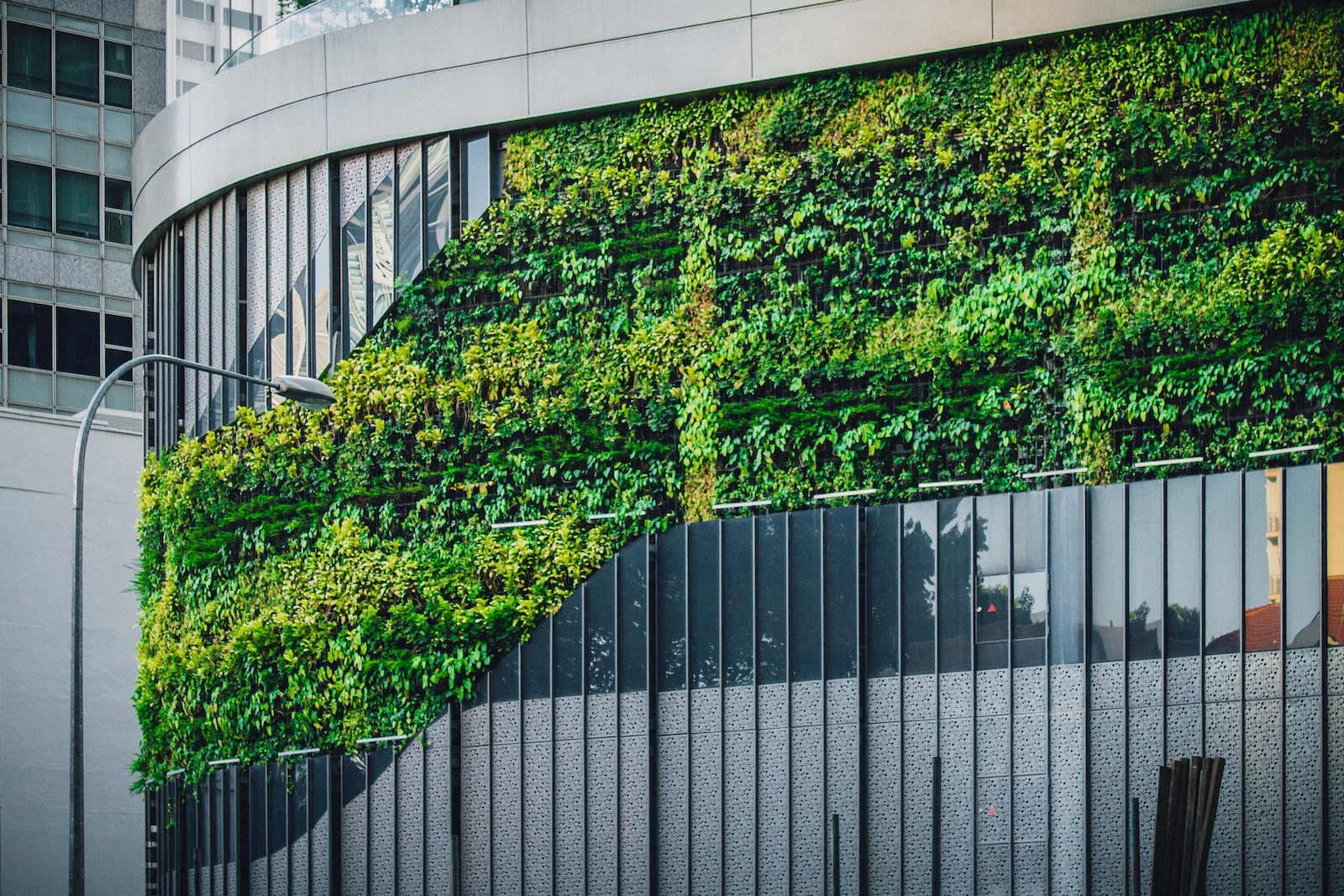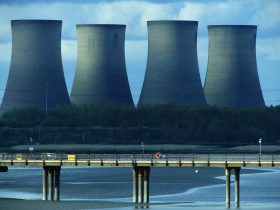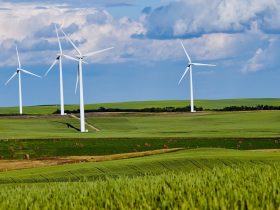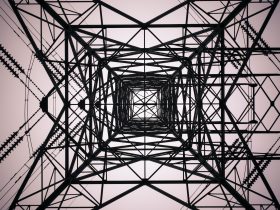In today’s world, finding sustainable solutions is more important than ever. As we strive for a greener future, the real estate industry has a vital role to play. Welcome to the world of ethical real estate, where innovations and practices are transforming the way we think about our homes and buildings.
From green building materials to energy-efficient technologies, ethical real estate is all about creating spaces that minimize harm to the environment. Developers and architects are increasingly incorporating sustainable design principles, such as solar panels, rainwater harvesting, and natural ventilation, into their projects. This not only helps reduce carbon emissions but also lowers utility costs for occupants.
Moreover, ethical real estate goes beyond just environmental considerations. It also takes into account social and economic factors, promoting responsible and inclusive development. Affordable housing, sustainable communities, and eco-friendly amenities are some of the key aspects of this movement.
Whether you’re a homeowner, investor, or developer, ethical real estate offers the opportunity to make a positive impact on our planet and our communities. Join us as we explore the latest innovations and practices that are shaping a greener tomorrow in the world of real estate.
The Importance of Ethical Real Estate for a Greener Tomorrow
In a world grappling with climate change and resource depletion, ethical real estate has emerged as a significant solution in creating a greener tomorrow. This approach acknowledges the impact of buildings on the environment and seeks to minimize it through sustainable practices. By adopting ethical real estate principles, we can reduce carbon emissions, conserve resources, and create healthier living spaces.
Ethical real estate is not just about constructing eco-friendly buildings; it encompasses the entire lifecycle of a property. From the materials used in construction to the energy consumed during occupancy, every aspect is carefully considered. This holistic approach ensures that sustainable practices are embedded into every stage, resulting in long-term benefits for the environment and the community.
Moreover, ethical real estate also addresses social and economic concerns. It promotes the development of affordable housing, ensuring that everyone has access to sustainable and comfortable homes. Additionally, it fosters the creation of sustainable communities that prioritize inclusivity, health, and well-being. By investing in ethical real estate, we can shape a future where everyone can thrive while minimizing our impact on the planet.

Sustainable Building Practices in Ethical Real Estate
Sustainable building practices are at the core of ethical real estate. From the design phase to the construction process, every decision is made with the environment in mind. Here are some key practices that are transforming the real estate industry:
- Green Building Materials: Ethical real estate emphasizes the use of environmentally friendly materials that have a lower carbon footprint. These materials range from recycled and reclaimed wood to sustainable concrete alternatives. By choosing sustainable materials, developers can reduce the extraction of finite resources and minimize waste generation.
- Energy-Efficient Design: Ethical real estate incorporates energy-efficient design principles to reduce the energy consumption of buildings. This includes optimizing natural lighting, using high-efficiency insulation, and designing spaces that promote natural ventilation. By reducing the reliance on artificial lighting and heating/cooling systems, buildings can significantly lower their energy consumption and carbon emissions.
- Water Conservation: Ethical real estate integrates water conservation strategies to minimize water wastage. This can include the installation of rainwater harvesting systems, low-flow fixtures, and efficient irrigation systems. By utilizing these practices, buildings can reduce their reliance on freshwater sources and contribute to water conservation efforts.
By adopting these sustainable building practices, ethical real estate is revolutionizing the way we construct and inhabit buildings. These practices not only benefit the environment but also provide long-term cost savings for occupants.
Energy-Efficient Technologies in Ethical Real Estate
Energy-efficient technologies are key components of ethical real estate, enabling buildings to reduce their energy consumption and carbon footprint. Here are some innovative technologies that are transforming the real estate industry:
- Solar Panels: Solar panels are a popular choice in ethical real estate, harnessing the power of the sun to generate clean energy. By installing solar panels on rooftops or as part of integrated building systems, buildings can offset their electricity consumption and reduce reliance on fossil fuel-based energy sources.
- Smart Home Systems: Smart home systems integrate technology to optimize energy usage within buildings. These systems can automatically adjust lighting, heating, and cooling based on occupancy and time of day, resulting in significant energy savings. Additionally, smart home systems enable remote monitoring and control, allowing occupants to manage their energy consumption even when they are away.
- Energy Storage Solutions: Energy storage solutions, such as batteries, are becoming increasingly popular in ethical real estate. These solutions store excess energy generated from renewable sources, such as solar panels, for later use. By storing and utilizing renewable energy, buildings can further reduce their reliance on the grid and enhance their energy independence.
These energy-efficient technologies not only reduce the carbon footprint of buildings but also provide financial benefits through lower utility bills. As technology continues to advance, we can expect even more innovative solutions to emerge, further driving the adoption of ethical real estate practices.
Green Certifications and Standards for Ethical Real Estate
Green certifications and standards play a crucial role in promoting and recognizing ethical real estate practices. These certifications provide clear guidelines and benchmarks for developers and building owners to meet sustainability goals. Here are some of the prominent green certifications and standards in the real estate industry:
- LEED (Leadership in Energy and Environmental Design): LEED is one of the most widely recognized green building certification programs worldwide. It assesses the sustainability performance of buildings based on various criteria, including energy efficiency, water conservation, indoor air quality, and materials selection. LEED certification signifies a commitment to environmental responsibility and provides credibility in the real estate market.
- BREEAM (Building Research Establishment Environmental Assessment Method): BREEAM is another leading green building certification program, particularly popular in Europe. It evaluates buildings based on their environmental, social, and economic impacts. BREEAM certification covers a wide range of criteria, including energy usage, water management, waste reduction, and ecological value.
- Energy Star: Energy Star is a voluntary program that certifies energy-efficient products and buildings. Buildings that earn the Energy Star label meet strict energy performance standards, indicating significant energy savings compared to conventional buildings. Energy Star certification is widely recognized and can enhance the marketability of a property.
By adhering to these green certifications and standards, developers and building owners can demonstrate their commitment to ethical real estate practices. These certifications not only validate the sustainability performance of buildings but also provide valuable marketing advantages.
Ethical Real Estate Investment Opportunities
Investing in ethical real estate not only provides financial returns but also contributes to a greener future. Here are some ethical real estate investment opportunities to consider:
- Green Buildings: Investing in green buildings that incorporate sustainable design and energy-efficient technologies can yield attractive returns. These buildings are in high demand due to their lower operating costs and positive environmental impact. Additionally, green buildings often command higher rental and resale values, making them a lucrative investment option.
- Renewable Energy Projects: Investing in renewable energy projects, such as solar farms or wind turbines, can be a profitable venture. These projects generate clean energy and contribute to reducing carbon emissions. As the world transitions towards renewable energy, investing in such projects can provide long-term financial gains while supporting the transition to a sustainable energy future.
- Sustainable Communities: Investing in sustainable communities can be both socially and financially rewarding. These communities prioritize sustainable design, affordable housing, and eco-friendly amenities. By investing in sustainable communities, you can contribute to the development of inclusive and environmentally responsible neighborhoods.
When considering ethical real estate investment opportunities, it’s essential to conduct thorough due diligence and seek guidance from professionals with expertise in sustainable investments. By aligning your investments with ethical real estate principles, you can make a positive impact on the environment while achieving your financial goals.
Ethical Real Estate Case Studies
Real-world examples of ethical real estate projects can provide inspiration and insights into the benefits and challenges of implementing sustainable practices. Here are a few notable case studies:
- One Central Park, Sydney: One Central Park, located in Sydney, Australia, is a prime example of ethical real estate. The building incorporates extensive green walls and vertical gardens, providing natural insulation and contributing to air purification. It also features solar panels, a rainwater harvesting system, and a tri-generation plant that generates electricity, heating, and cooling. One Central Park has set new standards for sustainable living in urban environments.
- BedZED, London: Beddington Zero Energy Development (BedZED) is a sustainable community in London, UK. The development includes energy-efficient homes, shared heating systems, rooftop gardens, and car-sharing facilities. BedZED aims to achieve zero carbon emissions by minimizing energy consumption and utilizing renewable energy sources. The project demonstrates the feasibility and benefits of sustainable community living.
- Green Building in the Park, Singapore: The Green Building in the Park is a net-zero energy building located in Singapore. It utilizes various sustainable design features, such as solar panels, rainwater harvesting, and natural ventilation. The building’s energy consumption is offset by the renewable energy it generates, resulting in a net-zero carbon footprint. The project showcases the integration of sustainable technologies in a tropical climate.
These case studies highlight the immense potential of ethical real estate in creating sustainable and innovative buildings and communities. By learning from these examples, we can replicate and expand upon their success in future projects.
Ethical Real Estate Agents and Brokers
Ethical real estate agents and brokers play a crucial role in promoting and facilitating ethical real estate practices. These professionals possess the knowledge and expertise to guide clients towards sustainable and environmentally responsible properties. Here’s why working with ethical real estate agents and brokers is beneficial:
- Expertise in Sustainable Practices: Ethical real estate agents and brokers are well-versed in sustainable building practices, green certifications, and energy-efficient technologies. They can offer valuable insights and guidance to clients interested in ethical real estate.
- Access to Ethical Real Estate Listings: Ethical real estate agents and brokers have access to a network of properties that align with sustainable principles. They can identify and present clients with opportunities that meet their environmental and social goals.
- Navigating Green Certifications and Standards: Ethical real estate professionals understand the complexities of green certifications and standards. They can assist clients in navigating the certification process and ensure compliance with sustainability requirements.
Working with ethical real estate agents and brokers streamlines the process of finding and investing in properties that prioritize sustainability. These professionals can help clients make informed decisions that align with their values and contribute to a greener future.
Challenges and Future Prospects of Ethical Real Estate
While ethical real estate offers numerous benefits, it also faces several challenges. Here are some of the key challenges and future prospects of the industry:
- Cost Considerations: Implementing sustainable practices in real estate can involve higher upfront costs. However, it’s important to recognize that these investments often yield long-term financial savings through reduced energy consumption and operational expenses. As technology advances and economies of scale are realized, the cost of sustainable solutions is expected to decrease, making ethical real estate more accessible.
- Awareness and Education: Ethical real estate is still a relatively new concept for many individuals and organizations. Raising awareness and educating stakeholders about the benefits and importance of ethical real estate is crucial for its widespread adoption. Increased awareness can lead to greater demand for sustainable properties and drive innovation in the industry.
- Policy and Regulation: The real estate industry operates within a framework of policies and regulations that can either facilitate or hinder the adoption of ethical real estate practices. Governments and regulatory bodies play a vital role in incentivizing and mandating sustainable practices through legislation and financial incentives. Continued support from policymakers is essential for the future growth and development of ethical real estate.
Despite these challenges, the prospects of ethical real estate are promising. As environmental consciousness grows and the urgency to combat climate change intensifies, the demand for sustainable properties will continue to rise. With advancements in technology, increased awareness, and supportive policies, ethical real estate has the potential to become the new norm in the real estate industry.
Conclusion: Embracing Ethical Real Estate for a Sustainable Future
Ethical real estate is not just a passing trend; it’s a necessity for a greener and more sustainable future. By adopting sustainable building practices, incorporating energy-efficient technologies, and promoting responsible development, we can minimize our impact on the environment while creating healthier and inclusive communities.
Whether you’re a homeowner, investor, or developer, embracing ethical real estate offers numerous benefits. From lower utility costs to increased property values, ethical real estate aligns financial returns with environmental and social responsibility.
As the world moves towards a more sustainable future, ethical real estate will continue to evolve and shape the real estate industry. By prioritizing sustainability, we can create spaces that not only meet our needs but also preserve the planet for future generations. It’s time to embrace ethical real estate and build a greener tomorrow.

































